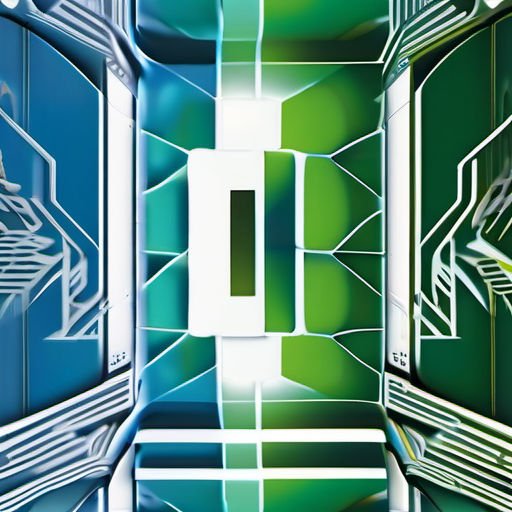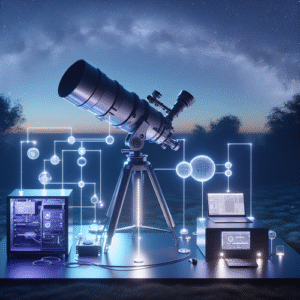When Man Meets Beast The Sci-Fi World of Human-Animal Hybrids
Unearthing the Mystery of Human Hybrids in The Island of Dr. Moreau
Few stories weave science fiction with ethical quandaries as intriguingly as The Island of Dr. Moreau. At its core lies the captivating concept of human hybrids — creatures forged at the frontier of genetic engineering, blurring lines between species and morality. These hybrids are not just fantastical beings but symbolic reflections of humanity’s unbridled ambition and its consequences. Venturing beyond the surface tale of isolation and horror, the narrative unfolds a profound exploration of science, identity, and what it means to be human.
The notion of human hybrids in this context provokes us to question: how far can science push the boundaries before ethics intervene? It’s a topic resonant not only in literature and film but also within ongoing debates in genetic research and bioengineering today.
The Origins and Evolution of the Human Hybrids Concept
The Island of Dr. Moreau’s Literary Roots
The idea of human hybrids first gained prominence in H.G. Wells’ 1896 novel, which served as a provocative warning about unchecked scientific experimentation. Dr. Moreau, a mad scientist banished to a remote island, creates grotesque beings by transforming animals into human-like creatures through vivisection. These hybrids became tragic symbols, caught between primal instinct and constructed humanity.
What made Wells’ story so compelling is his early exploration of genetic tampering and the ethical dilemmas it raises—issues that still resonate strongly today as biotechnology advances.
Adaptations and Depictions in Film and Media
Over the years, The Island of Dr. Moreau has been adapted multiple times in films and television, each iteration reinterpreting human hybrids through different lenses:
– The 1977 film starring Burt Lancaster leaned into the horror aspects, highlighting the grotesque transformations.
– The 1996 version, with Marlon Brando and Val Kilmer, focused on human psychology and the clash between civilization and savagery.
– More recent adaptations have explored the creature’s humanity, emphasizing empathy and the tragedy of scientific overreach.
Each portrayal adds new layers, expanding the mythos surrounding human hybrids and their place in pop culture and speculative science.
Scientific Realities Behind Human Hybrids: Fact Versus Fiction
What are Human Hybrids in Genetic Engineering?
Human hybrids, in a scientific context, refer to organisms that contain genetic material from humans and other species. This can happen in several forms:
– Chimeras: organisms containing two sets of DNA from different species.
– Hybrids: offspring resulting from crossbreeding different species (mostly theoretical in human-animal contexts).
– Genetically modified organisms (GMOs) with inserted human genes.
While The Island of Dr. Moreau dramatizes this through full transformations, modern science focuses on genetic insertions and cellular-level hybrids, often for medical research.
Breakthroughs and Ethical Challenges
Cutting-edge science has begun to explore human-animal genetic interfaces, notable examples include:
– Human-pig chimeras developed for potential organ transplants.
– Mice modified with human brain cells for neurological study.
– Efforts to grow human organs in animals to alleviate donor shortages.
These advances bring hope but also intense ethical scrutiny. Concerns include welfare, identity, and the potential for “playing God” in ways that cross moral boundaries. The Island of Dr. Moreau’s cautionary tale remains eerily relevant, reminding us that the line between innovation and hubris is perilously thin.
Exploring the Psychology and Philosophy of Human Hybrids
Identity Crisis: More than Just a Scientific Specimen
Human hybrids in the story are not just scientific experiments; they embody profound questions of identity. Trapped between animal instincts and human consciousness, these beings struggle to find their place—a metaphor for anyone displaced or alienated.
Their suffering poses thought-provoking questions: does having human traits confer humanity? Or is it the soul, self-awareness, and morality that define us? These hybrids remind us that science can manipulate bodies, but the essence of humanity is more elusive.
Ethical Implications in Creating Human Hybrids
The creation of human hybrids isn’t just a technical challenge but an ethical minefield:
– What rights should hybrids have if they possess human cognition?
– Where does responsibility lie between creator and creation?
– How do power dynamics shift when science can “manufacture” life?
These questions evoke contemporary bioethical discussions around gene editing technologies like CRISPR, underscoring Wells’ prescience in linking science with morality.
The Island of Dr. Moreau as a Metaphor for Genetic Engineering’s Future
The enduring popularity of The Island of Dr. Moreau springs from its powerful metaphorical core. The island itself becomes a blank slate where mankind’s scientific ambitions are unconstrained by society’s rules. Here, the consequences of hubris, isolation, and unchecked experimentation are laid bare.
Human hybrids serve as a stark warning about the risks of genetic engineering without ethical oversight. Their tragic existence mirrors the possible societal impacts if science outruns humanity’s moral compass.
As we advance further into the age of genetics, this fictional world provokes reflection on:
– The limits of scientific pursuit.
– The role of empathy and rights for altered beings.
– The societal consequences of creating life forms that challenge our definitions of humanity.
Real-World Parallels and Current Debates
The story’s themes echo loudly today. Debates rage over gene editing in embryos, synthetic biology, and designer genetics. The prospect of creating human hybrids or chimeras stokes both hope and fear:
– Medical science sees hybrids as a pathway to cure diseases or address organ shortages.
– Critics warn of slippery ethical slopes and potential misuse.
– Religious and cultural perspectives weigh heavily on what’s permissible.
The Island of Dr. Moreau encourages us to engage with these questions openly, balancing innovation with caution.
Fascinating Facts About The Island of Dr. Moreau
Beyond its themes, here are some lesser-known tidbits about The Island of Dr. Moreau:
– H.G. Wells drew inspiration from his interest in vivisection debates and evolutionary theory.
– The 1996 film faced on-set challenges, including Hollywood clashes and creative struggles, which complicated its reception.
– The novel has influenced numerous works exploring human-animal hybrids, from comics to video games.
– The term “Moreau’s Island” is sometimes used metaphorically in scientific ethics discussions.
These details enrich our appreciation of how the story continues to influence genetics discourse and popular culture.
Keeping the Dialogue Alive: Why Talking About Human Hybrids Matters
The allure of human hybrids transcends mere fantasy. It invites crucial conversations about where humanity stands in an age of unprecedented genetic power. This dialogue fosters public awareness and debate, essential for shaping responsible policies and innovations.
Here’s why continued discussion is vital:
– It promotes ethical oversight in rapidly evolving genetic technologies.
– It encourages empathy, recognizing potential life beyond traditional boundaries.
– It stimulates creative, interdisciplinary thinking blending science, ethics, and art.
For readers intrigued by these topics, exploring resources like the [Ethics and Genetics section at the Hastings Center](https://www.thehastingscenter.org/) offers deep dives into these evolving issues.
The story of human hybrids in The Island of Dr. Moreau is more than fiction—it’s a lens through which we can view and navigate the complex future of genetic engineering.
Embrace this narrative not just as entertainment but as a catalyst for thought. Dive deeper into genetic sciences, participate in bioethics debates, and keep the conversation about human hybrids alive—because the choices we make today will shape the species we become tomorrow.













Post Comment